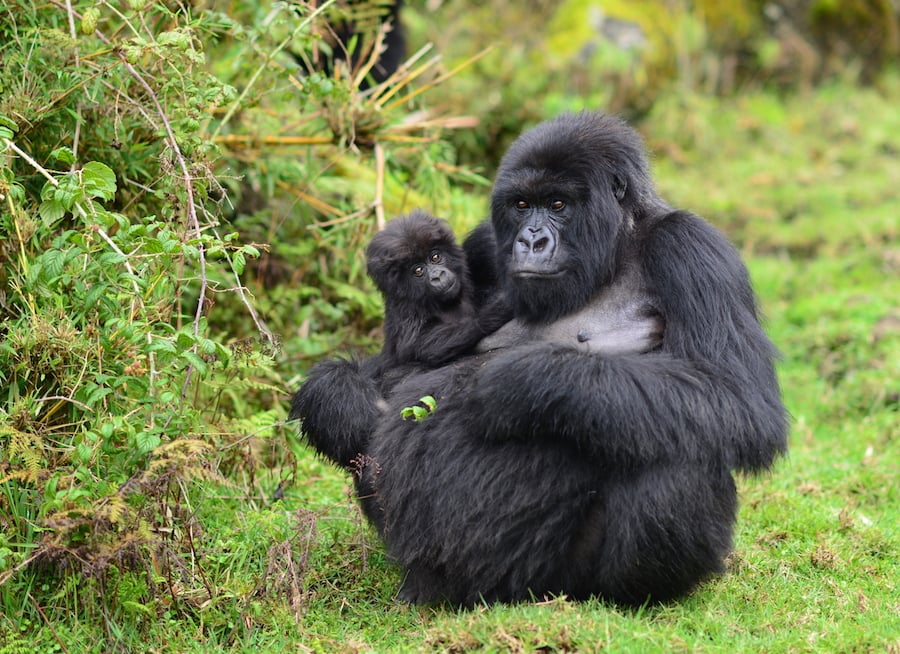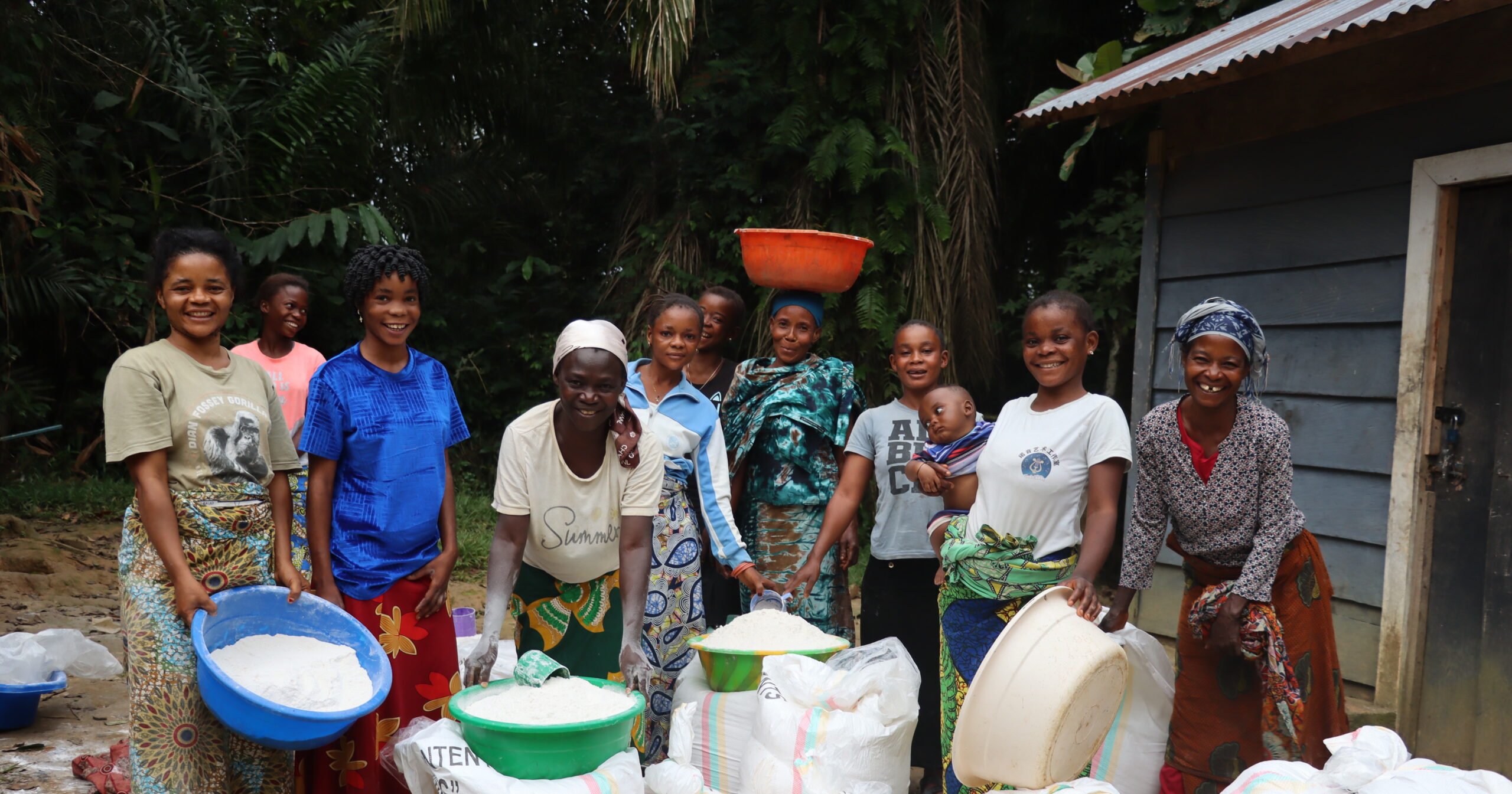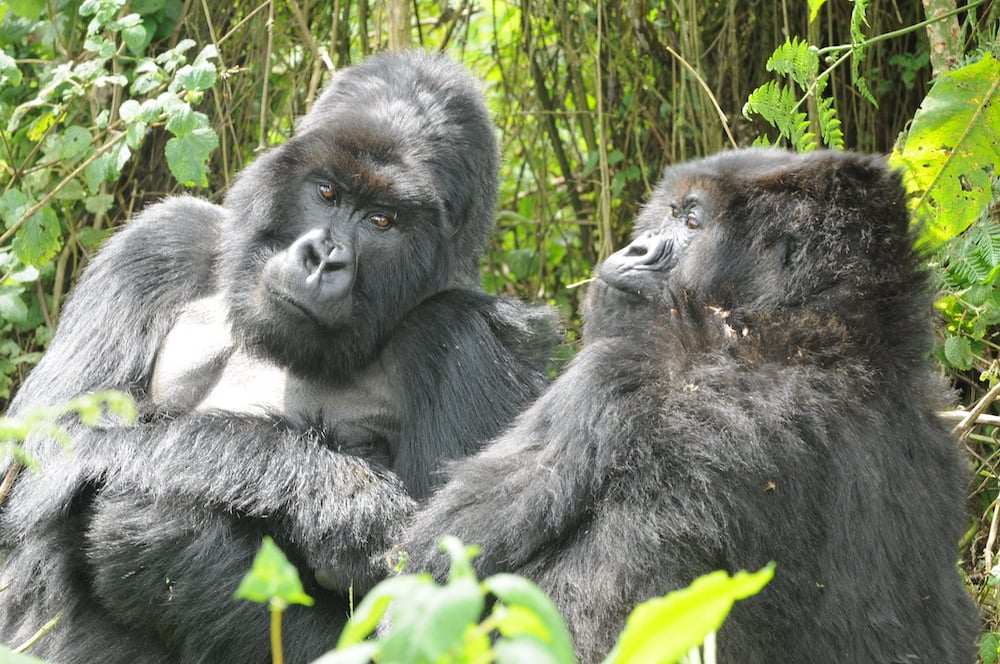June 2005
Karisoke Teaches Trackers, Tourist Guides, Students
 It's been a busy month for the staff at DFGFI's Karisoke Research Center, with the education program getting into full swing. Two sets of training and education took place in May, beginning with visits from second-year students from the National University of Rwanda.
It's been a busy month for the staff at DFGFI's Karisoke Research Center, with the education program getting into full swing. Two sets of training and education took place in May, beginning with visits from second-year students from the National University of Rwanda.
In all, 32 students took part in two education sessions, covering the topics of Karisoke's research, the biodiversity of the Virunga mountains, and gorilla ecology and behavior. There was also a presentation from the conservator of the Volcanoes National Park, Justin Rurangirwa, on the history of the park and the problems it faces. The students were also taken to see the tourist gorilla groups and to climb Mt. Visoke as part of their visit, both activities that few Rwandan nationals have the opportunity to participate in.
The goal of this training program is to stimulate biology students to become interested in the conservation of their own natural resources and to specialize in botany or zoology. So far this approach has been successful, with an average of three students per year choosing to carry out their final-year research projects at Karisoke. This type of capacity building is important, so that conservation measures in Rwanda will be successful and sustainable in the future.
The second training course was attended by trackers and tourist guides from ORTPN, the Rwanda Office of Tourism and National Parks. The aim of this course was to increase the participants' knowledge of the park and its flora and fauna, to give them a better understanding of relevant conservation issues and to help them provide an enhanced tourist experience.
The topics were selected to meet these goals and included:
- biodiversity and conservation;
- an overview of primate taxonomy and ecology;
- mountain gorilla ecology, behavior and conservation;
- golden monkey ecology and conservation; and
- Dian Fossey and Karisoke history.
Taking place over four intensive days, the course consisted of lectures, videos and field visits, with all participants working hard and enjoying the learning experience. Feedback from those involved in both courses has been positive and Karisoke is now looking into ways to bring the education program to a wider audience as well as reinforcing and expanding the training already given.






